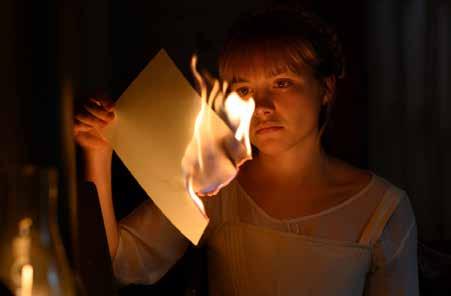
17 minute read
How palm oil has affected Malaysia
Nathalie Sparks Lower Sixth
In December 2018, the supermarket Iceland released a Greenpeace film to run as its Christmas advert, when the campaign was shortly pulled from TV because it had been deemed to breach political advertising rules. The supermarket had struck a deal with Greenpeace, a nongovernmental environmental organisation, to create an animated short film based on the destruction of an orangutan’s rainforest habitat at the hands of palm oil development. Habitat loss in countries such as Malaysia – one of the major global producing countries of palm oil – has contributed to the orangutan being classed as critically endangered worldwide.
Malaysia is in Southeast Asia. The country can be described as “a country of two halves”. One half is a very metropolitan beach gleam of the west, this is also the location of the capital Kuala Lumpur. The other half offers rainforests and Borneo – which is shared with Brunei and Indonesia. This shows a clear separation of pinnacle globalisation right next to the source – palm oil plantations. Palm oil is an edible vegetable oil that comes from the fruit of oil palm trees. Indonesia and Malaysia account for 85% of global supply according to the National Geographical magazine. It is in nearly 50% of the packaged products we find in supermarkets as well as being used in animal feed and as a biofuel in many parts of the world, excluding the UK. The oil is extremely versatile which makes it useful and very widely used. At room temperature it is semi-solid so can According to the latest report from the keep spreads spreadable as well as being UK’s government’s Department for resistant to oxidation, giving products Environment, consumption of sustainable longer shelf-life. Palm oil is also colourless palm oil in the UK has increased for the and odourless, so it does not alter the look fifth year running, quadrupling since or smell of products. This makes palm 2009. To meet the UK demands for the oil a very rsought after product, which sustainable product that is an important evidently causes problems. It is one of the ingredient in food such as biscuits and major drivers of deforestation in this area. chocolate, as well as toothpaste and For example, there is shampoo, a huge Borneo’s rainforest, one of the most biodiverse [C]onsumption of industry has been developed. Roughly forests in the world. The rate at which the palm oil is being exploited is having a severe sustainable palm oil in the UK has increased for the half of the processed goods in the shops contain palm oil, but millions of tonnes of effect on the species within the diminishing habitat. Not only is the habitat loss an issue, fifth year running, quadrupling since 2009. palm oil are going into people’s cars. More than 50% is also for biofuel. On the other but there also remains hand, the 2016 edition exploitation of workers and child labour of WWF’s Palm Oil Buyers looks at 137 which is a key socio-economic issue. In major retailers and food service companies addition, given the millions of tonnes of from around the world including key UK greenhouse gases being thrown into the brands such as Tesco and Waitrose. British atmosphere due to the deforestation and companies scored among the highest for conversion of carbon rich peat soils, this more sustainable palm oil consumption contributes to climate change. in this edition. This is evidence that

Kuala Lumpur
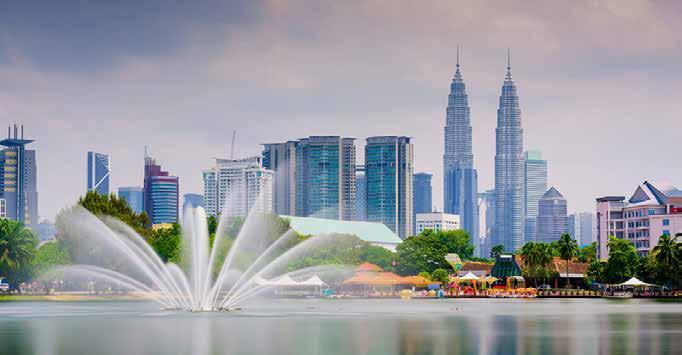
companies such as M&S and Boots to $2,500 per hectare, compared to a rice are ‘leading the way’ on sourcing plantation only making $250 per hectare. This sustainable palm oil. However, palm is very significant as it means the most part oil has continued to be a significant of Malaysians and Indonesians live indirectly source of friction in the EU’s from palm oil production. This makes palm relations with Malaysia, the world’s oil the driver to rapid economic growth and largest producer. The European contributes to the alleviation of rural poverty. Commission concluded this year The palm oil industries allow the country that its cultivation causes excessive to strike deals with bigger and powerful deforestation and its use in transport countries, such as the UK, USA and the most fuels should not count towards part of European countries. Therefore, this renewable energy goals. This means creates a more stable economic growth that is that the UK will have a ‘historic powered by the help of strong nations as well opportunity’ to strike a trade deal as the internal growth of Malaysia. with Malaysia, the country’s prime However, the production of palm oil has many minister has proposed – providing negative environmental at a range of scales. the UK relaxes restrictions on Palm oil is linked directly to the destruction imports of palm of rainforests, much like oil imposed by the EU because of the crop’s environmental [T]here is great progress being made and the rainforest in Borneo which is threatening the rich biodiversity of the Malaysian-Indonesian impact. In the UK alone, palm oil imports created 6,800 jobs and Malaysian palm oil industries are changing the. island. Development of new plantations alongside smallholders expanding their farms to meet the contributed £330 million to gross domestic product country for the better. rising demands have fuelled the rates of deforestation. This removal of rainforests (GDP) and £140 releases immense amounts of million to tax revenues. carbon dioxide into the atmosphere, speeding up global warming. Tropical deforestation The Malaysian palm oil industry accounts for about 10% of the total global is the main driving contributor to warming emissions from palm oil cultivation. the national economy providing an Locally, the tree roots which anchor the soil unfailing income for the exports in the tropics are being removed, therefore as well as employment. A good allowing heavy rain to wash away nutrient example for this is the average rich soil. This causes crop yield to decline and financial income of a plantation. farmers have to use expensive fertilisers which In a complete year palm oil is up clearly will do more damage than good to the environment. There have also been many legal conflicts between palm oil companies granted government concessions in forest areas, and the people who have used the land for centuries, in worst cases this has led to local people losing access to land and resources. This results in a significant amount (nearly half of 187 villages) being opposed to palm oil companies and production.
Overall, the balance of environmental struggle against the socio-economic benefits of the palm oil industry in Malaysia s makes it unclear as to which side is most important. From the basic understandings and data discussed, we can see that although palm oil has been negatively impacting the environment, the rate at which more sustainable solutions to the plantations are being created, and the economic growth it has triggered become more leading factors. Places such as the UK, who rely heavily on Malaysian palm oil plantations, have already begun tackling solutions for sustainable palm oil. For example, the Roundtable for Sustainable Palm Oil (RSPO) is the dominating practice for marketing sustainable palm oil, driven firstly by transport and energy saving sectors. Each problem is being met with potential to bring palm oil out of the list of unsustainable and climatic change contributing factors. Although this is a slow process and the social implications, such as the rights of the people working at the plantations are being met and the conflict that arises through landowning is being solved, there is great progress being made and Malaysian palm oil industries are changing the country for the better.

Maddy Lawrence, Upper Sixth.

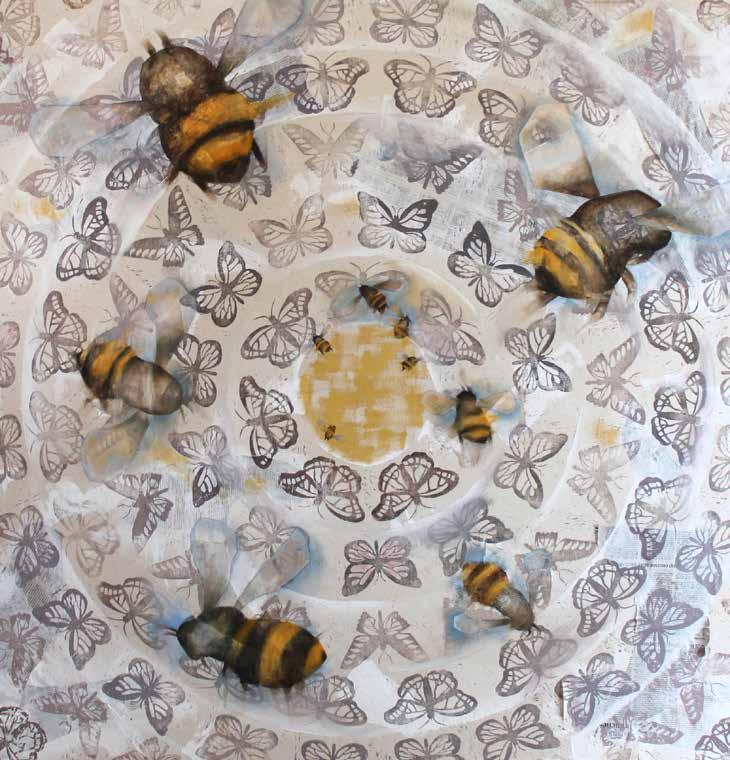
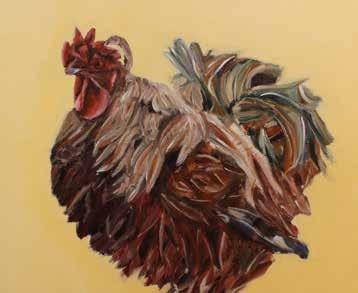
Why Amy, not Jo, is the proto-feminist of Little Women
Zoe Blackburn Lower Sixth
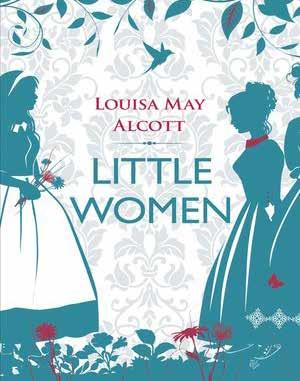
‘I do not enjoy this sort of thing,’ writes a reluctant Louisa May Alcott in 1868 as she begins work on Little Women, a two-part novel named and commissioned by her publisher. Though she completed it in just ten weeks, its influence has persisted and its pages passed through a new prism with each generation. By the 1970s it had experienced a literary renaissance, feminist critics had classified it as radical fiction, and, six remakes later, Greta Gerwig’s 2019 film adaptation seems to have done the same. But how far can filmmakers project their political agendas onto Alcott’s words without distorting it beyond recognition? And has Amy’s two-dimensional portrayal as the quintessential spoilt brat reduced her to comic relief? In this essay I will attempt to unravel the complexities which have arguably been ignored by a selectively feminist reading of the novel.
The distinction between Little Women and its bleakly patriarchal sequel Good Wives is simply that the two are framed in different phases of their protagonists’ youth. Jo’s ‘gentlemanly’ manners and desire to be ‘perfectly independent’ are permissible only within the confines of her adolescence; the androgynous Jo however never ‘troubled herself’ with finery and façade in the opening chapters, she later acquires ‘lace’, masquerades as an ‘actress’, and, ‘being a woman’, agonizes over her bonnet. Perhaps her determination not to reach womanhood prematurely is a recognition of the transience and fragility of that freedom, assurance that women should be content lamenting the ‘happy old times’ of her past with the ‘pleasant things’ they already made irretrievable by the social pressures of have. The incorporation of the Puritan text her present. Pilgrim’s Progress into the girls’ narrative Jo’s evolution is heavily impacted, too, by dichotomy between personal ambition and the death of her sister; Beth’s ‘unambitious’ domestic duty; since the latter ultimately and selfless character alters Jo’s perception prevails, however, the conclusion is an of the domestic tasks she once found inauspicious one in a novel so blatantly ‘distasteful’. The beatification of Beth is didactic: Jo is, ultimately, by tradition more problematic however, as the expectation than she is set free by her intellect. placed on Jo to ‘fill’ the void of her late sibling requires her to sacrifice her The criticism Bhaer directs towards Jo’s rebellious ‘old spirit’ and resign herself to writing illustrates the ‘submissive spirit’ improving the home rather than pursue which begins to subsume her in this her own ‘hopes, plans and desires’. Alcott’s perversion of a Bildungsroman. Alcott portrayal of Beth as a paragon of female writes that the professor condemned Jo’s piety to be copied and admired by her ‘sensationalist’ stories in an act similar young readership is a troubling one, since to saving a ‘baby’ from a puddle. This in doing so she enables and perpetuates the infantilizing appraisal from a man with no notion that a woman’s place is decidedly in formal literary education does not provoke Beth’s ‘little world’ and not outside of it. the heated dispute depicted in Gerwig’s The family matriarch ‘Marmee’ is also her ‘bad trash’, seemingly the result of three depicted as highly influential in shaping months’ labor. Contrary to Amy’s previous Jo’s moralistic education, professing destruction of one of Jo’s works, this ‘blaze’ her wish to be a woman ‘copied’ by her is a self-inflicted one, causing Jo to ‘give up’ daughters. Despite this, she instructs her entirely and declare that she doesn’t know children to ‘stop complaining’ about the ‘anything’. The professor’s comments have limitations and hardships they experience, triggered the collapse of her self-esteem, and advises Jo to suppress the ‘anger’ as she allows her voice in society to be they both share in a postbellum and yet manipulated by masculine opinion, her misogynistic America; the emancipation of artistic integrity to be compromised and slavery has only liberated those in physical her agency over her own career diminished. chains. It is through these ‘little lessons’ as a spiritual ‘guide’ only exacerbates this 2019 version. Instead Jo immediately burns that this oppression is made cyclical Though Jo’s earnings facilitate the and systemic injustices attributed to the realization of her ‘most cherished’ dream, failure of individuals. The Alcott argues that Jo’s desire to ‘cure’ an emotion [H]er innocence is tainted Jo is conditioned to see as ‘wicked’ is profoundly damaging as it skews her determination not to reach by her choice to investigate the ‘darker’ side of life: that to ability to identify entrenched womanhood interact with such prejudice and therefore causes her to blame herself, not society, for her prematurely is a recognition of ‘dangerous’ subjects was to ‘desecrate’ her most ‘womanly attributes’. ‘revolutionary’ sentiments. the transience Here the author Much of the novel’s central conflict arises as and fragility of that freedom. reinforces negative stereotypes which conflate a woman’s the author panders to two potential with her contradictory ideologies – purity, innocence and both Alcott’s discontent at being labelled an ignorance of the ‘morbid amusement’ the ‘weaker vessel’, and her puritanical in which women are unequipped to
participate. Though this writing granted Jo a feeling of ‘power’, Alcott claims that Bhaer’s later intervention was a necessary ‘punishment’ for Jo’s reluctance to conform; again she shifts more guilt onto her female protagonist rather than address the unpalatable cause of her suffering.
Jo’s assertive rejection of Laurie for the sake of her ‘liberty’ is undercut by her subsequent acceptance of the professor’s proposal. The symbol of an umbrella connotes masculine protection, something Jo initially shakes ‘her fist at’ in anger for consuming her sister, Meg. The significance of the penultimate chapter’s title as ‘under the umbrella’ then strengthens the irony of Jo’s shifting attitude, as she ultimately receives Bhaer’s shelter, citing a need for something to ‘lean upon’ as the catalyst for ‘surrendering’ to him. The supposition that an unmarried woman is deficient without the sanctuary of a man corrupts Jo’s once progressive outlook, and replaces it with a harmful notion of co-dependency. Their love is therefore tarnished with disingenuity, as Bhaer admits that Jo’s loneliness spurred him to propose marriage, rather than her genuine romantic attraction to him.
The maternal Mother Bhaer figure into which Jo eventually transforms makes the sacrifice of her identity absolute, her ‘spirit’ reduced to a ‘glimmer’. Jo’s individuality is now compromised by the change of both her name and position, her domestic duty becoming her single identifier. Her ‘castle’, although she had the ‘key’ to it, has not come to fruition: she told ‘no stories’ following her engagement – it was indeed a remote, ‘childish notion’, unrealistic in
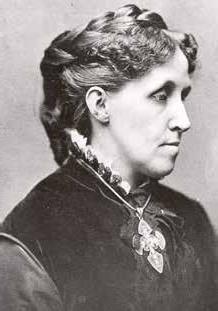
Pilgrim’s Progress
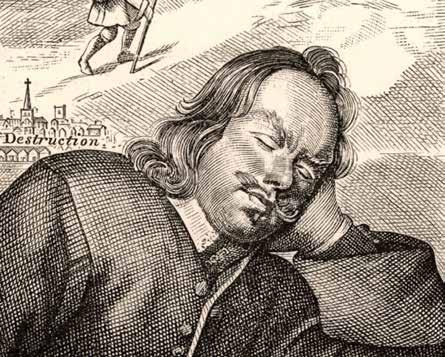
a suffocatingly hierarchical 19th century Her mother’s conspiracy for Meg to ‘learn’ society. Instead, Jo labels her old ambitions to love the poor John Brooke arguably ‘cold’, now sidelined by an apparently strips her of any of the tangible ‘power’ ‘long cherished’ fantasy to ‘look after’ the in society she claims to desire; Marmee young boys taught projects her scriptural by her husband. Yet it is in the warm domesticity [S]he allows her voice in society to philosophy that the daughters will not ‘make a dash’ on history or which binds the novel together that the women at its core are stifled, be manipulated by masculine opinion, her artistic become ‘queens’ onto her ambitious, but vulnerable, children, acting as a corrosive and forced to ‘let’ their ‘castles go’; Jo assumes a passive role in the integrity to be compromised and her agency over influence on their prospects from the outset. education of her boys, not girls, promising the her own career diminished. The matriarchal nature of the household is proved an illusion by continuation of Meg’s instant culpability the ‘dreadfully unjust’ patriarchy she once for every domestic failing: ‘evil’ for her detested. Most alarmingly of all, she is now expenditure; ‘childish’ for an insubstantial unaware of her own enslavement. dinner; ‘unreasonable’ for prioritizing her Alcott offers an alternative that is no more her ‘wifely attentions’, ‘poor’ John resorts optimistic through her portrayal of Meg. to visiting his ‘lively, pretty’ neighbor as She, too, must follow the ‘path’ of duty substitute, while Marmee insists that ‘the and sacrifice her ‘castle’. The palpable fault’ is firmly with Meg. This deflection undercurrent of puritanical values in of blame culminates in Meg’s isolation Little Women is perhaps the root of its and silence, accepting her ‘docility’ and emphasis on sacrifice. The text begins with her husband’s ‘paternal rule’. The Edenic the minor sacrifice of the girls’ breakfast implication that women are intrinsically to six children disadvantaged by poverty, responsible for the ‘temptation’ of men and ends with each protagonist sacrificing instills something potentially toxic into their ‘favorite dream’. Meg’s aspiration to the young girls commonly encouraged to become ‘mistress’ of ‘heaps of money’ is interact with the text. a significant one contextually, matrimony children. Believing her guilty of neglecting being the only accessible opportunity for The subsequent alterations in Meg’s a woman to advance her station in 1868. behaviour in order to placate her

disappointed husband further paint her resolve to ‘work hard’ whereas Laurie is as an archetypal ‘little mother’. Meg’s condemned for his inability to work ‘like a apathy towards politics and mathematics, man’. It is the misogyny which underpins which she perceives as incompatible with these judgements which acts as the true her ‘feminine ideas’, reiterates the female antagonist of the piece. mind as too simplistic to understand them; Brooke’s contrived interest in ‘lace’ and Alcott acknowledges that, in civilization, ‘millinery’ immediately presumes them ‘money’ typically confers ‘power’. The as female trivialities interconnection incapable of invoking [T]he continued between these entities genuine delight in a man; the romanticised expectations on Meg demand for Meg’s ‘obedience’ in is reflected in this progressive zeal to possess ‘fortune’ and to construct a feminine the home negates ‘solid luxury’. What ‘paradise’, to transcend human limitations and be a domestic ‘angel’, any pretense of equality inside it. differentiates Amy’s ambition from that of the other principal nearly consume her female characters and make her ‘sick’. Their compromise is however is her resourceful capacity to find laced in condescension while the continued a ‘new purpose’, altering her aspirations demand for Meg’s ‘obedience’ in the home when necessary but retaining her desire negates any pretense of equality inside it. to be ‘great’ or ‘nothing’. Consequently, Alcott’s protagonists are not ‘ruling’ their she remains the only sister to unlock ‘happiest kingdom’; they are only subdued her ‘castle’, the only sister to receive any enough to be deceived. primitive form of emancipation past the Amy’s long-standing legacy as the callous relationship with the affluent Laurie resists antagonist to Jo has historically been sustained on two equally indefensible charges. The first, her childhood reduction of Jo’s manuscript to a ‘bonfire’ – an admittedly disproportionate response to feeling socially excluded, though unjustly exploited by critics to oversimplify her as vacuous and spiteful. The second, and infinitely more disturbing however, is her pragmatic and unapologetic determination to be ‘the best’ in her field. Throughout the text, Alcott confounds female ambition with ‘vanity’. Mrs March’s recognition of Amy as ‘so ambitious’ is immediately undermined by her use of the crucial conjunction ‘but’ not ‘and’ to assure Jo that her sister is ‘tender’, despite her masculine work ethic. Amy is condemned for her age of sixteen: even the dynamic of her convention, as he willfully permits her to ‘rule’ him despite the status quo.
Rather than naively accept the ‘flattery’ of her suitor, Amy vehemently rebukes it, condemning Laurie’s sense of entitlement regardless of the ‘splendid’ opportunities his circumstances concede him; for a woman to convey a moral lesson to an imperfect man in this novel is rare given the ubiquity of male authority figures dispensing their ‘sermons’ onto the four ‘little women’. While her two surviving sisters marry teachers, Amy boldly assumes this role herself. Here Alcott’s youngest protagonist remains the only sister to undergo a positive transformation. Unlike Jo, she not only recognizes the opposition ‘ambitious girls’ encounter, but actively employs the financial ‘power’ she has acquired to challenge it and satisfy their artistic desires, if not her own: while the March sisters are repeatedly pushed into docility, anonymity and poverty throughout Little Women, Amy alone manages to push back.
